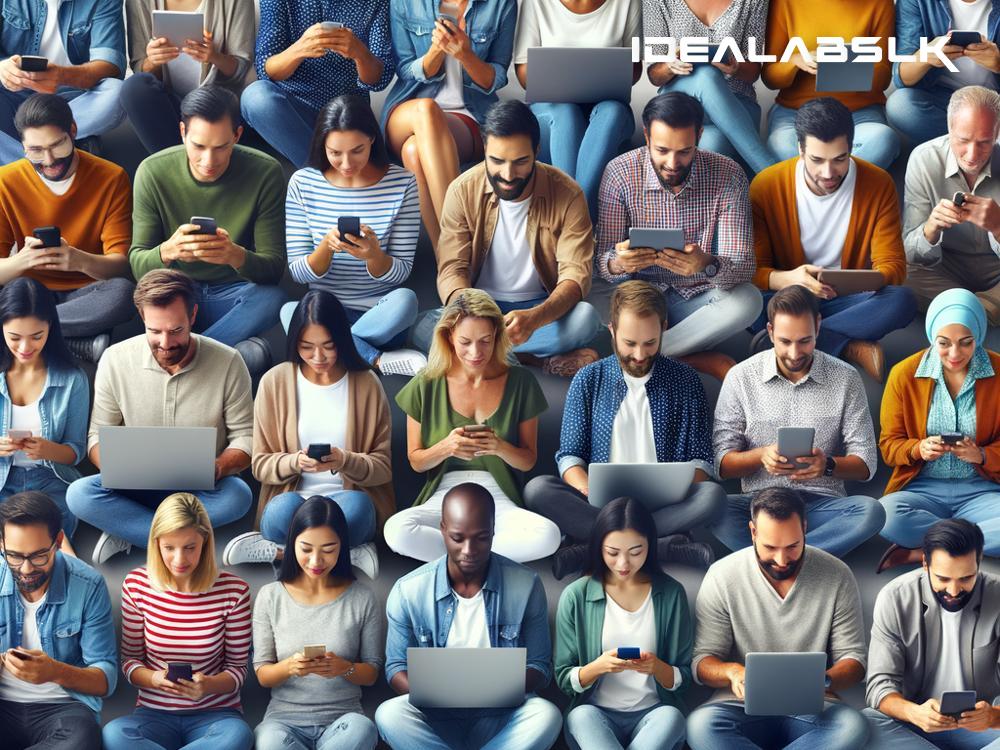The Rise of Crowdsourced Content: A Digital Revolution
In today's digital world, something extraordinary is happening. People from all corners of the globe are coming together, not in person, but online, to create content. This phenomenon, known as crowdsourced content, is changing the way we see, use, and interact with information on the internet. It's like a massive team project where everyone pitches in their piece, and the result is something truly remarkable. Let's dive into the world of crowdsourced content and understand its rise.
What is Crowdsourced Content?
Imagine you're building a giant puzzle. Instead of you finding and placing every piece yourself, imagine hundreds or thousands of people each contributing a piece. That's crowdsourced content in a nutshell. It's when content is created not by one person or a select group but by a large crowd of people, each contributing their small part. This can happen in various forms – writing articles on Wikipedia, reporting real-time traffic conditions on Waze, or answering questions on Quora.
The Rise of Crowdsourced Content
The roots of crowdsourced content can be traced back to the early days of the internet, but it's in the last decade or so that it has really taken off. There are several reasons for this surge:
1. Increased Internet Access:
As more people around the world get connected to the internet, the pool of potential contributors to crowdsourced projects has exploded. With a smartphone in nearly every hand, contributing has never been easier.
2. Social Media and Connectivity:
Social media platforms have made it simple for ideas to spread and for people to collaborate. They've provided the tools and the platforms for crowdsourced content to flourish.
3. A Shift in Thinking:
There's been a shift from passive consumption of content to active participation. People are no longer content just to consume; they want to contribute, to be a part of something bigger.
The Impact of Crowdsourced Content
The impact of this shift towards crowdsourced content is profound:
1. Democratizing Information:
Crowdsourced content puts the power of information creation and dissemination in the hands of the many rather than a select few. It's democratic, allowing anyone with something to contribute to do so.
2. Improved Information Quality and Diversity:
With so many contributors, information is constantly being updated and corrected. It's also more diverse, representing multiple viewpoints and experiences.
3. Innovation and Problem Solving:
Crowdsourced content has been used to solve complex problems, from tracking diseases to creating open-source software. The collective intelligence of a crowd can be a powerful force for innovation.
Challenges of Crowdsourced Content
However, like anything, crowdsourced content is not without its challenges:
1. Ensuring Quality:
With so many contributors, ensuring the accuracy and quality of information can be difficult. There are mechanisms in place on many platforms to address this, but it remains a challenge.
2. Bias and Manipulation:
There's also the risk of bias or manipulation, where certain voices or perspectives dominate to the exclusion of others or where information is manipulated for specific agendas.
3. Sustainability:
For many crowdsourced projects, finding a sustainable model — how to support, fund, and maintain them over the long term — is a significant challenge.
The Future of Crowdsourced Content
Despite these challenges, the future of crowdsourced content looks bright. Technology continues to evolve, offering new ways for people to collaborate and contribute. The potential for crowdsourced content to drive positive change, spur innovation, and create more inclusive and diverse information ecosystems is immense.
As we move forward, it will be essential to address the challenges and ensure that crowdsourced content can continue to thrive. If we can do this, the possibilities are endless. We're not just passive consumers of content; we're creators, contributors, and collaborators. And that's a powerful thing.
In conclusion, the rise of crowdsourced content is a testament to the power of collaboration and the digital revolution. It represents a shift in how we think about content creation, participation, and the collective intelligence of the global crowd. As we navigate this digital age, the way we harness and contribute to this collective effort will shape the information landscapes of the future. Crowdsourced content is not just a trend; it's a transformative force, and it's only getting started.

